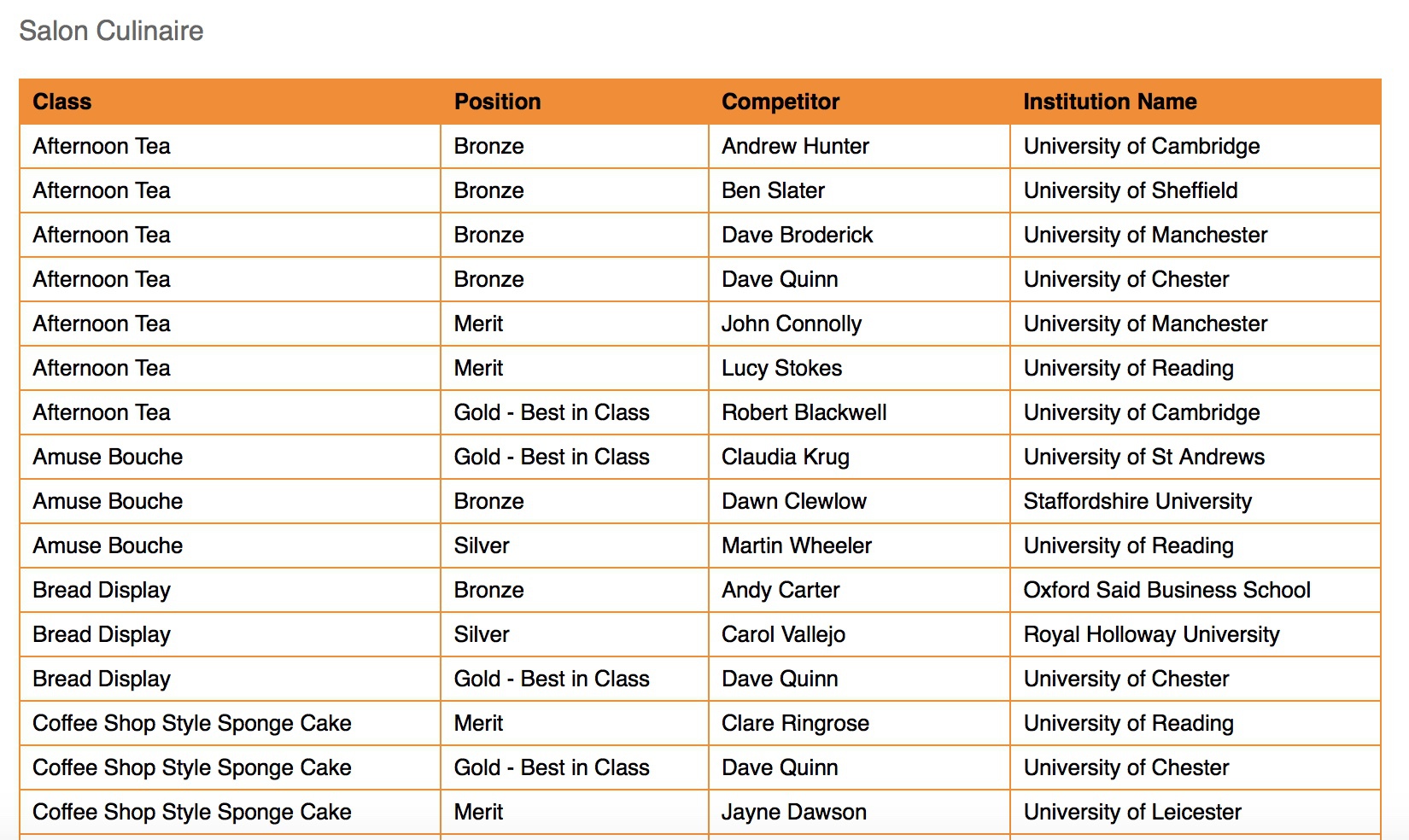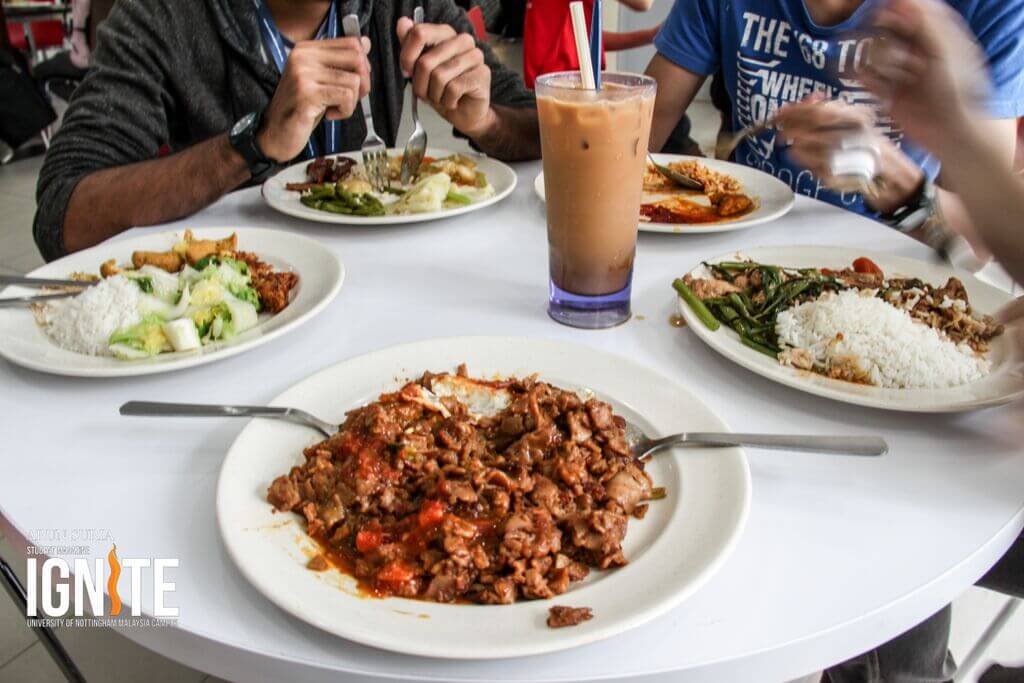We’ve come a long way from the traditional meat and two veg in a university residence dining hall. There are many more options now in universities, in halls and in on campus catering outlets, for the discerning student (and staff member).
However, in the UK we still have someway to go before we meet the culinary standards in some US universities. Huffpost recently covered some of the best, even going so far as to claim, not at all hyperbolically, that “a new epicurean era has dawned” on university campuses:
BOWDOIN COLLEGE – Constantly scoring the coveted number one or two spot on finest foods lists, it’s a little too easy to mistake this college for a giant clambake full of really smart people. “The seafood around here is all fresh so when we have fish, mussels, clams, it’s all tasty. And we had a lobster bake during orientation, and I think there are a couple more planned throughout the year.”
NORTHWESTERN UNIVERSITY – Every college serves cookies. Northwestern does ‘em better with a weekly hot cookie bar. Warm, still-gooey, and fresh out of the oven, “you have to scoop them up from the tray with a giant spoon, and they melt right in your mouth. Combined with a little bit of ice cream and chocolate sauce, they taste like what I imagine everything is going to taste like in heaven.”
ROGER WILLIAMS UNIVERSITY – There’s a lobster and steak dinner (collegiate surf & turf, if you will), where “you can get a whole lobster or steak, baked potato, etc., those lobster cracker things and bibs and bowls for the table.” And ambiance is key: “they cover the tables in paper like you were at a lobster or crab shack.”
They also put on a Thanksgiving feast that is “amazing, like balls to the wall so good” featuring a carving station, classic Turkey Day favorites, bread cornucopias, and dishes served in freaking pumpkins.JOHNS HOPKINS UNIVERSITY – Once a month, JHU students get to brunch in style, complete with a live jazz band, at their Sterling Brunch. During this event, they “serve the fanciest sh*t, like baked brie, shrimp cocktail, and bananas Foster”.
All sounds lovely although I’m not sure bananas Foster (whatever they are) sound that special.
Meanwhile in the UK, TUCO, The University Caterers Organisation, is leading the way, looking to raise the standard of catering across the board. They do more than this though:
TUCO is the leading professional membership body for ‘in house’ caterers operating in the higher and further education sector. We are committed to advancing the learning and developing of catering and hospitality teams, and work to provide quality standards, advice and information to those working in the sector. TUCO is committed to driving the health and well-being agenda on behalf of its members, and is at the fore of sustainability best practice.Our procurement team work to secure the best possible value in all framework agreements, demonstrated by purchasing volumes in excess of £100m per annum.

They really are aiming to enhance the quality of the offer in institutions which I can confirm having last year attended the TUCO annual conference (held at the University of Nottingham) where I was hugely impressed with the incredible food, completely allergen-free, served at the gala dinner.
Some of the awards TUCO offers to recognise achievement are arguably a bit niche.

But all of this is aimed at improving the catering experience in our universities. Which can be no bad thing.
Looking further afield, this piece in Inside Higher Ed, taken from THE, included some observations from Tan Chorh Chuan, who recently stepped down as the President of the National University of Singapore (NUS), on the importance of the quality of food and dining facilities to the institution’s success. One of NUS’s large food courts has 700 seats and offers over a dozen separate outlets, each offering a different type of Southeast and East Asian cuisine. And there are three others, even larger than this on campus, feeding about 50,000 people each day.
In an interview with Times Higher Education in London, where he gave the Higher Education Policy Institute’s annual lecture last month, Tan explained how the completion in 2011 of the University Town complex, where many of the campus restaurants are based, as are its four residential colleges, learning spaces and open-air communal areas, had been a “real milestone” of his tenure because it had significantly reshaped life on campus.
“These are not just places where you eat — it’s where students and staff linger, mix and also learn from each other,” he said, adding that this element of campus life is “a cultural dimension that makes Singapore special.”
This is also very much the case at the University of Nottingham Malaysia Campus which, although on a significantly smaller scale than NUS, has a strong emphasis on quality, choice and affordability in campus catering. This is a critical issue for students and consistently comes up in student surveys as one of the most important aspects of the wider student experience.


Catering on campus does really matter.













In the creation of the Student Centre at Bournemouth University, we (SUBU) visited NE US campuses. Many of the catering provisions are based around big players like Compass/ Sodexho or ‘concessions’ as they call them ie branded offerings, Dunkin Donuts etc .
I’m an ex catering manager and didn’t see anything earth shattering in the catering, but the student centres themselves were very impressive buildings.
This rather breezy post glosses over obesity issues generated by the system of food commons in the USA where meal ticket packages incentivise excess consumption. In a UK context, there are arguments in favour of significant subsidies on campus food as it can be a way to strengthen student communities. It is a complex area though partly because (of course) there are alternative activities that might be subsidised and also because the irelationship between the campus environment and eating disorders is complicated. See for example: https://www.hindawi.com/journals/apm/2015/639239/ When planning campus building projects, it is important to think about self-catering and food… Read more »
Malcolm Gladwell has done an excellent podcast on this very topic in his Revionist History series
From a staff perspective, wholesome catering is a factor in my wellbeing, however, staff wellbeing does not drive catering improvement, student satisfaction does. The options at our institution can be good depending on your location, but I’m in the dungeons away from the studentship. Ironically, an incubated student business provides my best food option – desk delivered wholesome lunch.